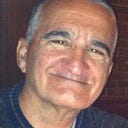Readers
Born in Germany in 1944, Bernhard Schlink earned a law degree, has served as a judge, and also finds time to write books. He hit a commercial grand slam with his first novel, The Reader, published in 1995. A copy came my way via a donation to the floating book shop. The story is simple, the psychology complex and, in the end, inconclusive and unsatisfying, as it tends to be in all unusual situations. In the late 1950’s a 15-year-old has an affair with a 34-year-old woman. Unless I’m mistaken, the consensus on such relationships believes it to be damaging. I disagree. I believe it is a male teenager’s dream. Whether or not it is negative, it proves to be in the long run in the protagonist’s life, although it can be argued that it would not have been had the woman’s past been benign. He spent a lot of time reading to her, then one day she disappeared. Years later she is the central figure in a trial of concentration camp guards. Now a law student, the young man attends each session, his feelings a confusing jumble that make him numb. If I understand the author’s intent, the relationship serves as a microcosm of post-war Germany. How does one come to grips with such a past? Is the woman forced to bear more than a reasonable share of responsibility? Although the two make eye contact in the courtroom, the man does not visit his former lover once her life sentence begins. Still, he is so unsettled by what he is supposed to feel that he believes he must do something, so he records himself reading books and sends her the tapes. As in all Holocaust art, the central question of why is not answered. It will never be. History has shown that such atrocity occurs all too frequently, and no can adequately explain it. The value of the book, at least for me, boils down to a line repeated twice. The woman asks the judge: “What would you have done?” That, as the immortal Bard said through Hamlet, is the question. All but psychopaths would want to believe they would have acted nobly. Fortunately, most folks are never put in such a situation. Maybe the real question is why such brutality doesn’t occur even more often. The Reader won several literary awards. Its 2008 screen adaptation received several Oscar nominations. Kate Winslet won best actress. A DVD of it also came my way in the same donation. I’ll give it a look soon. 836 users at Amazon have rated the novel, forging to a consensus of 4.2 on a scale of five. Schlink is to be commended for taking a different tack and allowing the reader to try and form an opinion on a confounding psychological issue. Although my feeling on the evil the Nazis perpetrated has not changed and my understanding of why they embraced it is no closer to resolution, I still feel the book is valuable, and that its worth will be debated for decades. It was translated by Carol Brown Janeway. At first I thought the prose and dialogue lacking, then suddenly it seemed to improve immensely. Schlink has written many other works but none have approached the impact of The Reader. The sex is not explicit. Anyone who wants answers should look elsewhere.
The Fallen Heroes Memorial is in Florida. 28-feet-wide, it is made of the dog tags of deceased soldiers. Here’s a pic:
It was a quiet session of the floating book shop. My thanks to avid reader Lynn, who bought The Mote in God’s Eye by Larry Niven and Jerry Pournelle, a highly regarded sci-fi novel; and to Wolf, who purchased a non-fiction hardcover on Jewish books, and Confessions Of An Indiegirl, a CD by Bari Koral, of whom neither of us had ever heard.
My Amazon Author page: https://www.amazon.com/Vic-Fortezza/e/B002M4NLJE
FB: https://www.facebook.com/Vic-Fortezza-Author-118397641564801/?fref=ts
Read Vic’s Stories, free: http://fictionaut.com/users/vic-fortezza
